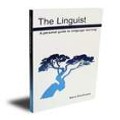×
Nous utilisons des cookies pour rendre LingQ meilleur. En visitant le site vous acceptez nos
Politique des cookies.
The Linguist: A personal guide to language learning, 18. A Language Adventure. Importance of Phrases
The principles of Chinese grammar are different from English.
I deliberately ignored explanations of the theory of Chinese grammar because these theoretical explanations made no sense to me.
Instead, I just accepted the various structural patterns of sentences in Chinese as normal.
I knew that with enough exposure they would start to seem natural to me.
I found it easier to learn the structure of a new language from frequent exposure to phrase patterns rather than trying to understand abstract grammatical explanations of that structure.
I realized in studying Chinese, a language so different from my own, that the fundamental component I had to learn was not the word, but the phrase.
Language skill consists of spontaneously being able to use prefabricated phrases and phrase patterns that are natural to the native speaker and need to become natural to the learner.
Phrases are the best models of correct practice in a language.
Certain words naturally belong together in a way that the learner cannot anticipate but can only try to get used to.
When words are combined in the natural phrases of the language they achieve force and clarity.
It is not grammar and words that need to be learned, so much as phrases.
New vocabulary is more easily learned together with the phrases where it is found, and even pronunciation should be learned in the form of phrases.
Phrases, however, cannot be easily learned from lists.
Rather it is when the same phrases are frequently encountered in audio and written contexts and then systematically studied and used that you are able to retain them.
The principles of Chinese grammar are different from English. I deliberately ignored explanations of the theory of Chinese grammar because these theoretical explanations made no sense to me. Instead, I just accepted the various structural patterns of sentences in Chinese as normal. I knew that with enough exposure they would start to seem natural to me. I found it easier to learn the structure of a new language from frequent exposure to phrase patterns rather than trying to understand abstract grammatical explanations of that structure. I realized in studying Chinese, a language so different from my own, that the fundamental component I had to learn was not the word, but the phrase. Language skill consists of spontaneously being able to use prefabricated phrases and phrase patterns that are natural to the native speaker and need to become natural to the learner.
Phrases are the best models of correct practice in a language. Certain words naturally belong together in a way that the learner cannot anticipate but can only try to get used to. When words are combined in the natural phrases of the language they achieve force and clarity. It is not grammar and words that need to be learned, so much as phrases. New vocabulary is more easily learned together with the phrases where it is found, and even pronunciation should be learned in the form of phrases. Phrases, however, cannot be easily learned from lists. Rather it is when the same phrases are frequently encountered in audio and written contexts and then systematically studied and used that you are able to retain them.

